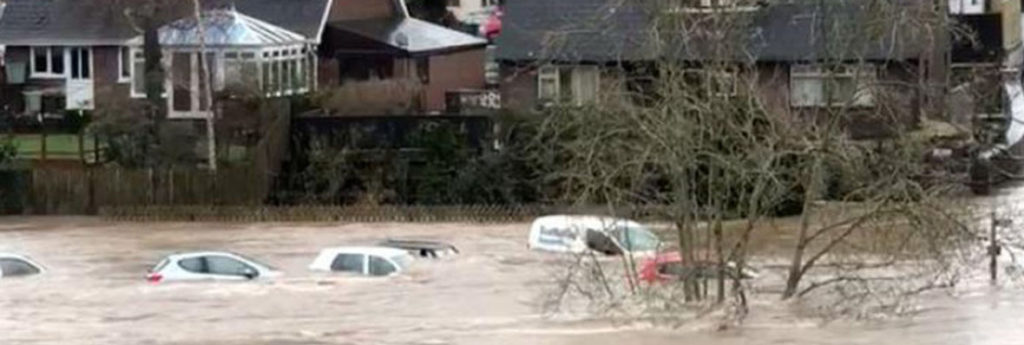Storm Dennis, prompted widespread travel disruptions across Europe and had the potential to cause more damage than the previous week’s storm, named Ciara. On Monday Britain issued five “severe” flood warnings, meaning there is a danger to life, in three central English counties as gale storms also caused flooding and electricity outages across other parts of northern Europe.
The British environment secretary said climate change was making extreme weather events more common, but denied the government was unprepared.
“We’ll never be able to protect every single household just because of the nature of climate change and the fact that these weather events are becoming more extreme, but we’ve done everything that we can do with a significant sum of money, and there’s more to come,” George Eustice said.
The five “severe” flood warnings were issued in the counties of Worcestershire, Herefordshire and Shropshire.
Residents in parts of Wales and western England were cleaning up Monday after the storm flooded roads, railways, homes and businesses.
The weather system brought winds of more than 145 kilometres (90 miles) per hour and up to 150 millimeter (6 inches) of rain to some areas of Britain over the weekend.
Forecasters said river levels in parts of northern England had yet to reach their peak. In the northern England city of York, authorities were piling up more than 4,000 sandbags as the Rover Ouse continued to rise. It’s expected to peak on Tuesday.
Across the North Sea, strong winds and heavy rain caused flooding, road closures and electricity outages across the Nordic and Baltic region.
In Norway, more than half a dozen roads and several passes were closed while the southwestern Denmark city of Kolding and its surrounding were flooded as gale force winds and heavy rain battered the area.
Emergency services in the city at the end of the Kolding Fjord on the eastern side of the Jutland peninsula were pumping out water from basements and using sand bags to try to contain the water.
In Estonia, some 1,200 households were without electricity, the Baltic News Service reported.

